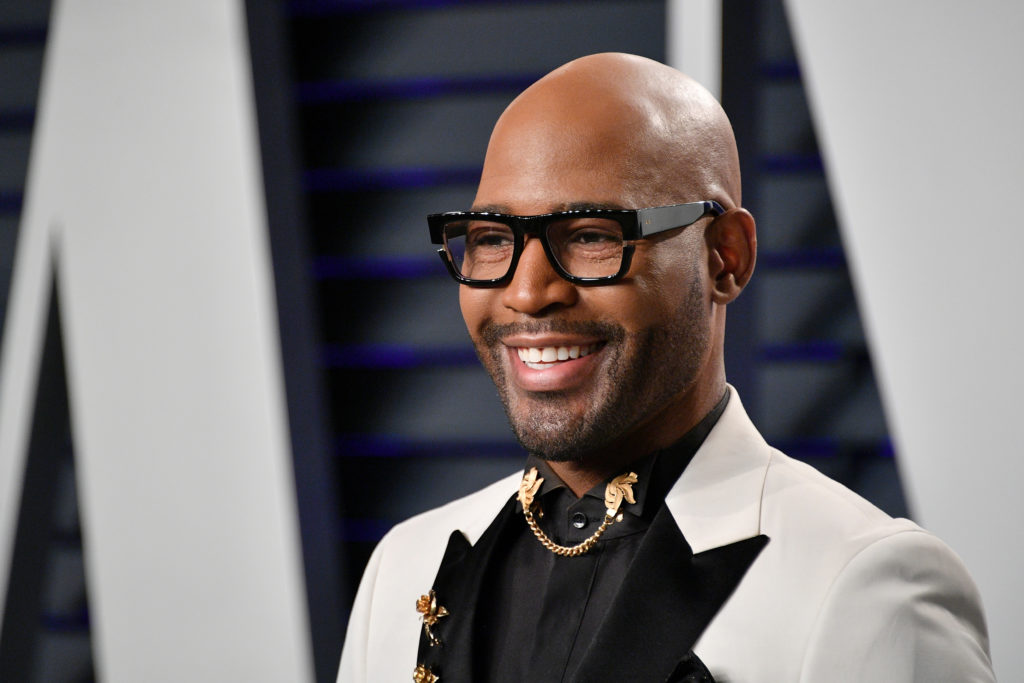“People are like, ‘Oh what, five gay men? What are they gonna do? Twirl?’ Yes, we twirl. But we also get deep.”
On Nov. 6, “Queer Eye” star and television personality Karamo Brown spoke to students during an event hosted by the Stanford Speakers Bureau. A gifted public speaker who oscillated effortlessly between humor and emotion, Brown discussed topics ranging from the cultural impact of “Queer Eye” to his time on the reality TV show “The Real World” to his conversations with Sean Spicer on the set of “Dancing with the Stars.”
Coming from a background as a social worker, Brown has a proclivity for conversation that deeply informs his role as the “culture expert” on “Queer Eye,” a show in which a group of five (“Fab Five”) provides full lifestyle makeovers for people who need them. For most episodes of the show, Brown talks to the makeover participant for four to five hours, working to understand the underlying issues keeping them stuck in undesirable patterns. In an interesting contrast, however, Netflix analytics have shown he speaks the least on the show of any of the experts.
Brown attributes his few words per season to his commitment to listening, a dedication that has bolstered the show’s success. After the week of extreme makeovers, Brown spoke of the “aftercare” the show does for participants: phone calls, emotional support. Through an incisive and compassionate look into people’s lives, the Fab Five is able to encourage dramatic changes in its participants. Brown fondly recalled favorite memories from past seasons — uniting a disabled veteran with the friend who shot him and helping a mother publicly accept her LGBTQ+ son at church.
The show’s impact has even extended outside the United States. Brown expressed his wonder at once receiving a message from a man in Brazil, claiming he had turned himself into the police after “Queer Eye” showed him physically abusing LGBTQ+ people was wrong.
Asked about being the first out gay Black man on reality TV (“The Real World”), Brown took the opportunity to discuss his thoughts on the term “coming out.” He noted how “coming out” places the burden on the individual and strips them of control, and instead proposed the term “letting people in.” This way, he explained, there’s no shame — no closet to be relegated to.
“If there is a closet I came out of, I want to find that closet,” Brown said. “There better be a pot of gold in there for all the shit I’ve had to go through. I want to take that gold, and then I want to burn the closet down.”
Brown has continued to unite his LGBTQ+ activism with his exceptionally warm personality (to a panelist: “Love the SF background, boo!”) — it matters little to whom he’s speaking. In 2019, Brown caught flack for talking to and befriending former White House Press Secretary Sean Spicer during their tenure on “Dancing With the Stars.” Brown recalled being baffled at why he was being “canceled.” He believes having difficult conversations with people who don’t agree with you is the only way to change their opinions.
Once, for instance, he brought his kids to set to have lunch with Spicer’s kids. Spicer remarked that Brown was “a good dad.” At that point, Brown pressed him on the topic — if Spicer really believed Brown was “a good dad,” why was he espousing rhetoric that would keep LGBTQ+ people from adopting children?
The key to change, Brown said, is to have difficult and constructive conversations with people of all backgrounds — whether they’re strangers or your parents. He explicitly outlined three steps for having more constructive conversations:
- “Make sure you go into the conversation with one clear objective” — and don’t get sidetracked.
- Don’t look for a pretty bow and resolution (“Real life isn’t ‘Queer Eye’”).
- Choose a productive time to talk, and remember “you have control over when this is.”
In his closing remarks, Brown offered up another piece of advice for college students listening. His suggestion: Stop comparing yourself to others.
“Don’t steal your own joy,” he warned. “This is your journey. You can walk your path at the pace you want to walk your path. You’ll get where you should go on your own time.” Here he paused with a kind expression, recognizable even in Zoom pixels: “And that’s okay.”
Contact Valerie Trapp at trappv22 ‘at’ stanford.edu.
